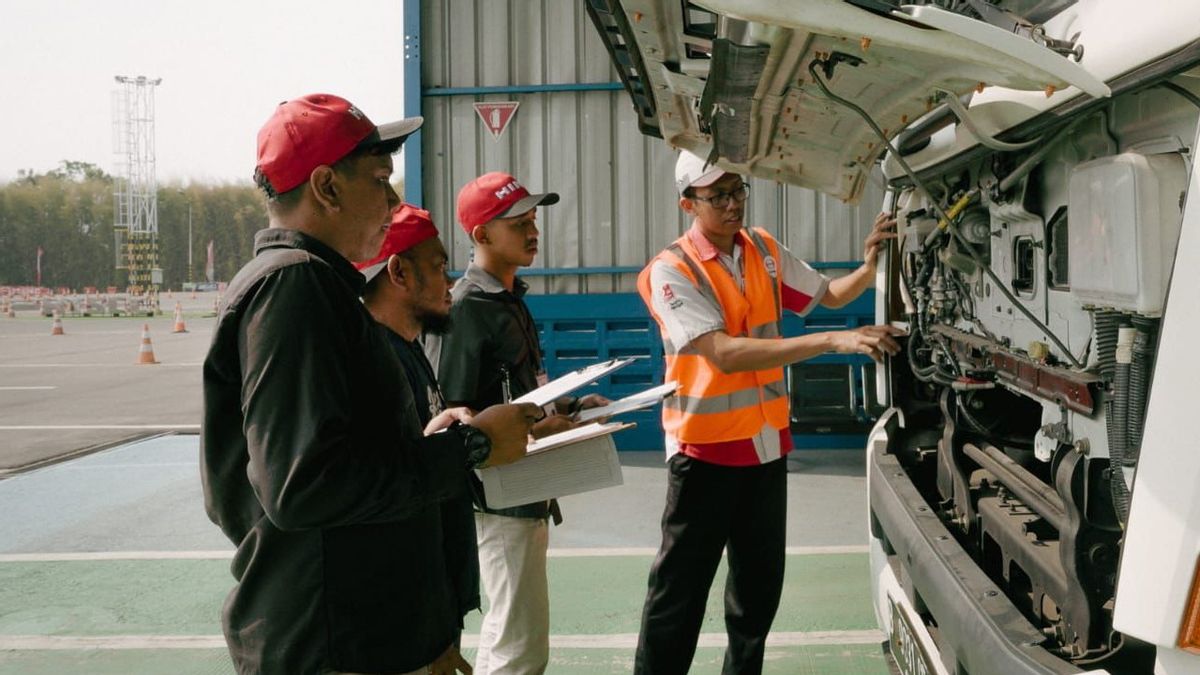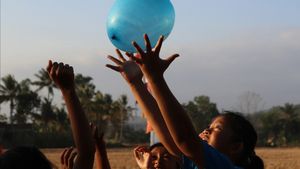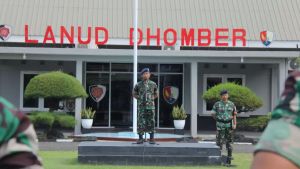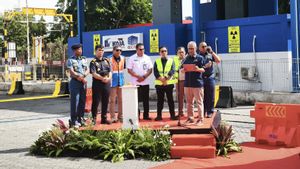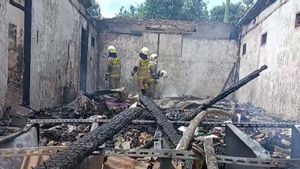JAKARTA - "The Pre-Employment Card Program really allows people to work," roughly that's the sentence that I was able to express my response to around 17.5 million other Pre-Employment alumni, which are absorbed in various jobs in Indonesia.
In March 2023, I had the opportunity to take part in the training provided by the Pre-Employment Card Program. I chose to take part in the journalistic training program, because at the same time, I was also in the final stages of the interview, before joining ANTARA to become a Text Correspondent.
I chose to take the training, because I felt I did not have good knowledge in the field of journalism, even though at the same time I managed to get through two stages of interviews in the recruitment process to join ANTARA.
The training that I participated in was filled by a professional and experienced person in his field, namely Djaka Susila, a senior journalist in leading media in Indonesia. Through this training, I feel helped in discussing the theories studied in college, with the real practice faced in the world of journalism.
Although the training runs online, the training provided is not only in the form of delivering material. The training process also runs interactively through discussions, question-and-answer sessions verbally, as well as assignments in each meeting session. The assignment also serves as a condition for participating in training in the next session, so the participants who take part in the training are motivated to complete their duties.
I, who is an alumni of Pre-Employment for the 49th wave (normal scheme), feel that the knowledge given is very useful, and is able to help me adapt to the world of work that I just underwent. Previously, I worked as a teacher of service at one of the Islamic boarding schools in East Java. This is exactly what was conveyed by the Executive Director of the Pre-Employment Card, Denni Puspa Purbasari.
"The workforce provides access for the workforce to be able to equip themselves with new skills, so that then they can be adaptive and resilient. This means that if there is a company unit that is suddenly eliminated, or the job challenge changes, we are then ready, have the flexibility, and are flexible to then take an open opportunity," said Denni some time ago.
Since early 2023, the Pre-Employment has been running using a normal scheme, where participants have received training costs of Rp. 3.5 million, post-training incentives of Rp. 600,000 which will be given once, as well as survey incentives of Rp. 100,000 for two survey fillings.
Pre-employment no longer uses the semi-social assistance scheme as in previous years, where participants received training costs of Rp. 1 million, incentives after training of Rp. 2.4 million which were given four times for four months (Rp. 600,000 per month), and survey incentives of Rp. 150,000. This is regulated in Presidential Regulation Number 113 of 2022, whose implementation regulations are contained in the Regulation of the Coordinating Minister for Economic Affairs Number 17 of 2022.
Pre-employment launched by the Coordinating Ministry for Economic Affairs since April 2020 is designed to prepare the Indonesian workforce for training, to improve labor competence, increase labor productivity and competitiveness, and develop entrepreneurship.
Entrepreneurship development efforts provided through a number of training provided by the Pre-Employment also help in preparing the country in the face of recession and economic stagnation that can come at any time.
"When we talk about recession and economic stagnation, we don't just think about the current. Disruption in this job will continue to occur, it will be faster and more frequent. We must prepare, the Pre-Employment has prepared for people who take part in this program to develop their competence, to be able to prepare themselves for a superior world of work, including for victims of layoffs," said Denni Puspa Purbasari.
Pre-employment not only facilitates participants to conduct online training, but also provides a number of offline training or face-to-face training. Pre-Employment data shows that in 2023 there will be 168 face-to-face training organized by 75 training institutions.
Of that figure, there are more than 20 thousand face-to-face class purchases spread across 38 regencies/cities throughout Indonesia. Among them are Bali, Papua, South Sulawesi, North Sulawesi, Riau, West Nusa Tenggara, East Nusa Tenggara, and all provinces on the island of Java.
Some of the training fields that get the most interest are in marketing, informatics technology, graphic design, tourism and hospitality, automotive, and agriculture. Several other areas that are also of great interest include accounting, creation content, administration, business administration, and foreign languages.
Not long ago, the Pre-Employment with Hino Academy held a offline Large Bus and Truck Driving Training activity in Purwakarta. There is also a Heavy Equipment Basic Treatment (Bulldozer and Excavator) organized by United Tractors in Cakung, North Jakarta. The two lasted for several days.
Director of Pre-Employment Monitoring and Evaluation Cahyo Prihadi said that the Pre-Employment opens opportunities for the public to make a number of skilling, resklling, and upskilling efforts. Hino Academy's Large Bus and Truck Driving Training can help improve participant competence by learning new things.
"The goal is to ensure that people have training (and) improve competence. As for people who are already working, the quality and competitiveness can be increased. Initially, the driver of the car picked up, is now a truck driver," said Cahyo.
Rakhmad Abadi from Purwokerto, is one of the participants in the Big Bus Driving Training. He, who is an online taxi driver, admitted that he did not panic, and was even happy because he felt the sensation of being behind the wheel of the bus.
"I used to be in vocational school majoring in automotive and used to work at automotive factories as well, so I deliberately bought this training," he said.
After receiving a certificate from Hino Academy, Rakhmad hopes that he can get a job at the bus automotive company (PO) in collaboration with Hino.
"It's okay if at first it became a co-driver. I realized why the science is still basic and has no experience," he said.
Through these various experiences, it is proven that Prakerja has made efforts for the Indonesian people in providing training services, to develop various people's abilities to be able to live and work, not just facilitating the public to watch training and be paid.
The English, Chinese, Japanese, Arabic, and French versions are automatically generated by the AI. So there may still be inaccuracies in translating, please always see Indonesian as our main language. (system supported by DigitalSiber.id)
